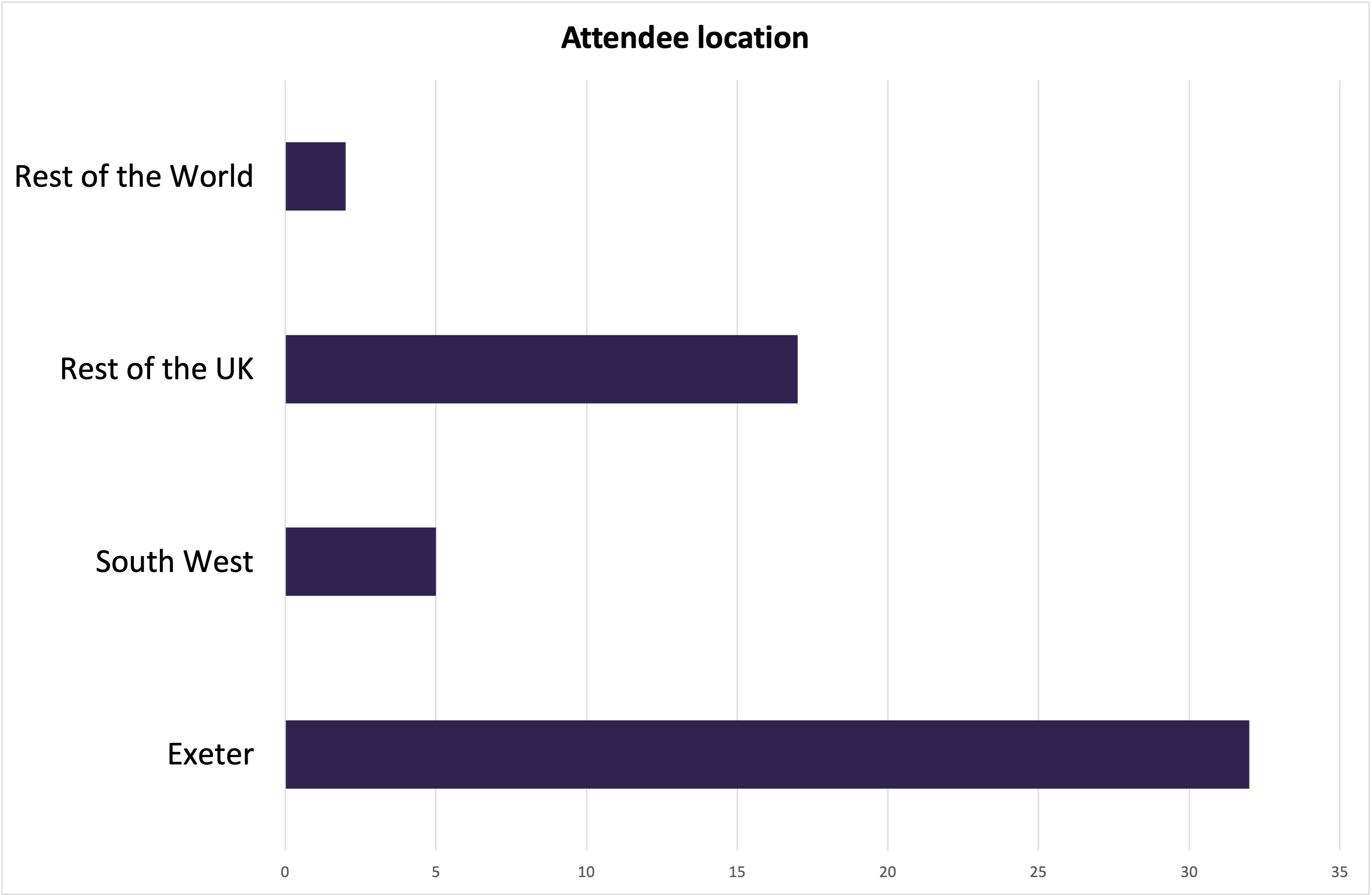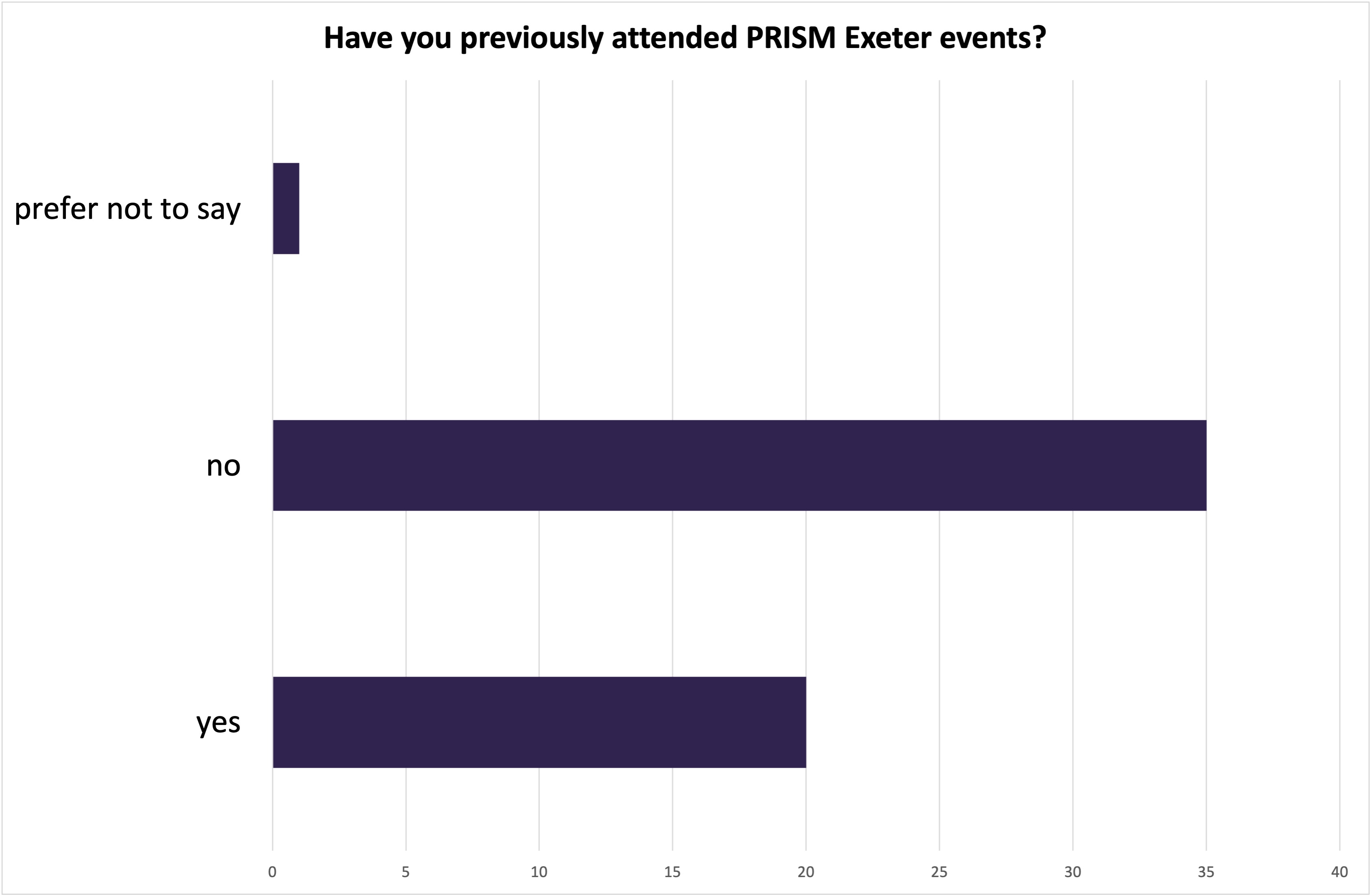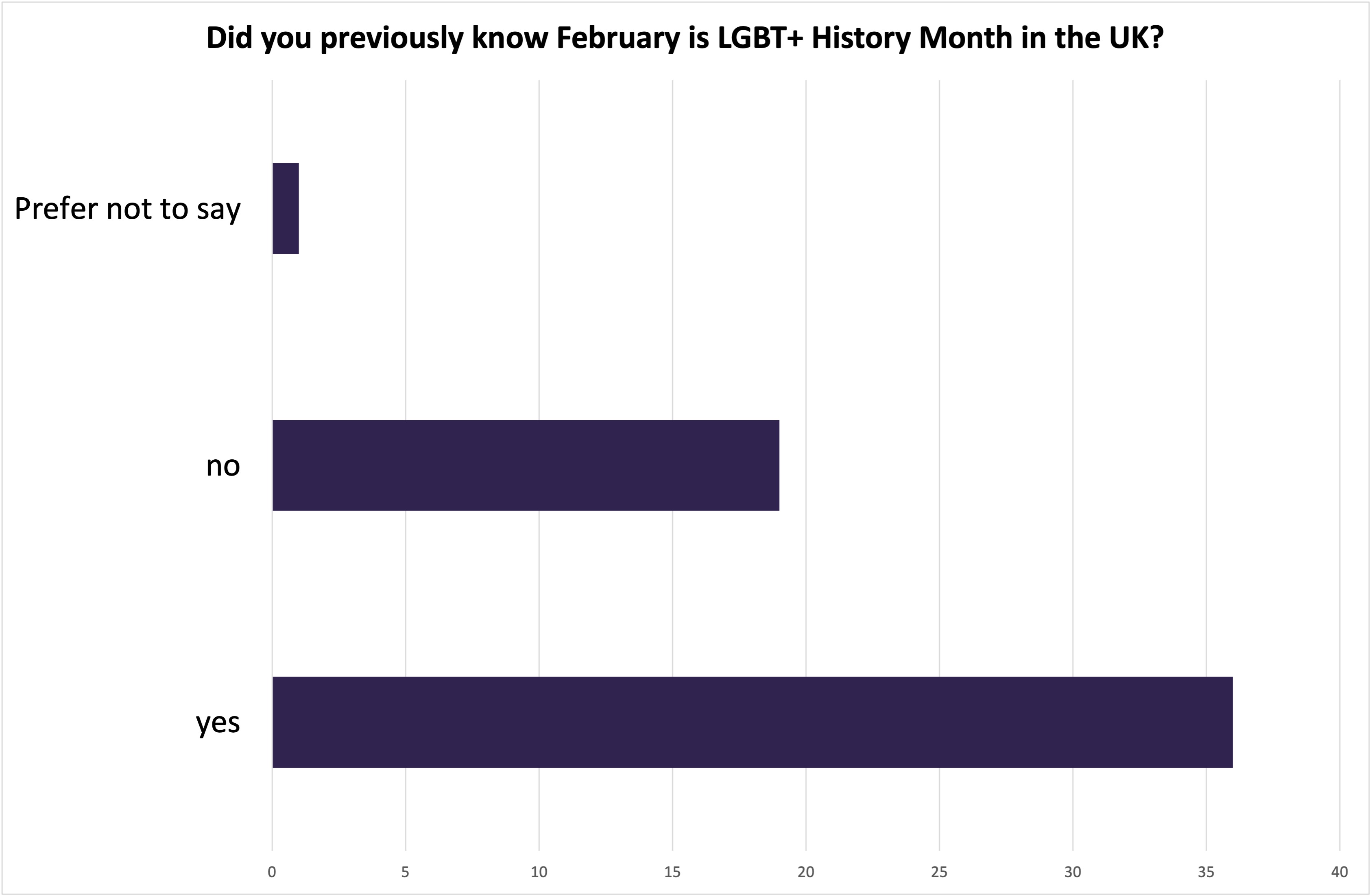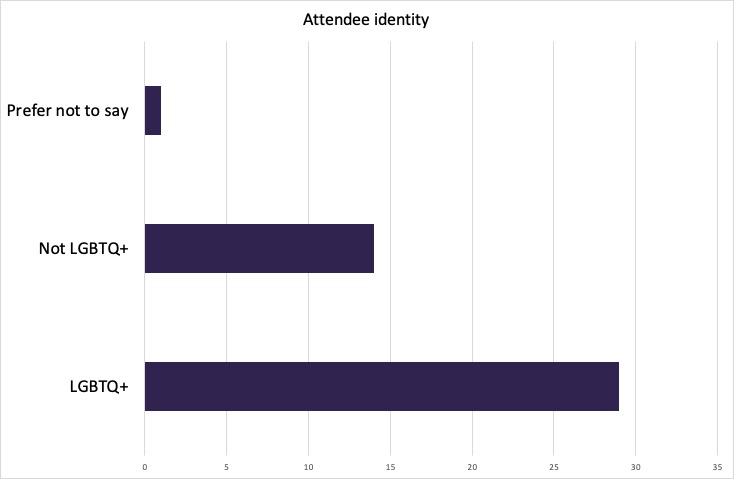PRISM Speakers - February 2021 Insights
Our first event of 2021 took place in February 2021 to coincide with LGBTQ+ History Month in the UK. Due to the national lockdown in England (associated with the COVID-19 pandemic), the event was held online via Zoom. Thanks to British Sign Language interpreter, Sophie Probert, we were able to provide full BSL interpretation for the first time at one of our events.
We received 93 registrations for the event on Eventbrite. Of these, 56 accessed the Zoom meeting at some point during the event and we enjoyed a peak audience of 48. Attendees were provided with an overview of LGBT+ History Month, including when and why it started in the UK, and what its purpose is. They were then treated to talks by Dr Melissa Brooks, meteorologist from the Met Office, and Dr Alex Dudgeon, post-doctoral Researcher at the University of Exeter.
Melissa provided a brief historical overview of weather prediction technology from the 1920s to the present day and explained how, as a meteorologist at the Met Office, she uses their global atmosphere model in her work. She explained how complex this model is due to its many applications and how this can introduce unexpected results in weather forecasts. She highlighted how teams of people can all work to develop this hugely complex piece of computer code simultaneously by means of version control and a check-out and ticketing system.
In the second part of her talk, Melissa moved on to talk about more personal recent developments. She explained to the audience how she had come out at work via PowerPoint and took everyone through the presentation she had delivered to her colleagues just last year. In her "director's cut" style commentary, she explained why she chose to explain things in the way that she did. From the comments and discussions that followed, this part of Melissa's talk in particular, offered inspirational insight to Trans, LGB+ and cis-het audience members alike. A recording of Melissa's talk is available to watch below.
Alex spoke about how diagnoses techniques were originally purely post-mortem all the way up to the 20th century until medical professionals became able to study what goes on inside the human body while a person is still alive. Alex explained how technological advances have made modern diagnosis methods considerably less invasive and explained how his cutting-edge research into light-based diagnostic methods is helping to diagnose cancers without the need for biopsies or major surgery. A recording of Alex's talk is available to watch via the link below.
Please note that audience questions and comments have been removed from the recordings of both talks to protect the anonymity of attendees.
When accessing the meeting, attendees were asked a series of questions including where they were joining us from, whether they identified as LGBTQ+, whether they had previously attended any other PRISM Exeter events, and whether they had previously been aware that February is LGBTQ+ History Month in the UK.
 Of the people attending the event, just under half (43 %) joined from outside the
Exeter area. Attendance from other areas of the UK was stronger than for our previous online events
but we saw a reduced number of attendees joining from outside of the UK (2 attendees joined from the USA)
compared to our previous online events.
Of the people attending the event, just under half (43 %) joined from outside the
Exeter area. Attendance from other areas of the UK was stronger than for our previous online events
but we saw a reduced number of attendees joining from outside of the UK (2 attendees joined from the USA)
compared to our previous online events.

 We are continuing to see the size of our audience grow at our online events and, once again, we enjoyed
a considerable number of first time attendees. Our attendees reported finding out about our event via
"work/university/school internal communications" (23 %), "word of mouth" (23 %), "social media"
(16 %), "emails and newsletters" (13 %) among others. We are grateful to everyone who helped to
promote this event. For the first time, we also saw people discover our event through Eventbrite itself
which was an unexpected bonus.
We are continuing to see the size of our audience grow at our online events and, once again, we enjoyed
a considerable number of first time attendees. Our attendees reported finding out about our event via
"work/university/school internal communications" (23 %), "word of mouth" (23 %), "social media"
(16 %), "emails and newsletters" (13 %) among others. We are grateful to everyone who helped to
promote this event. For the first time, we also saw people discover our event through Eventbrite itself
which was an unexpected bonus.
It was great to also see that around a third of attendees were learning of LGBTQ+ History Month through our event. This day aims to normalise LGBTQ+ identities and highlight the existence and contributions of LGBTQ+ individuals throughout history. We are delighted see awareness of the month continue to grow.
 Through our Speakers series, we aim to highlight that the people working in
STEMM are as diverse as the work that they do. We feel it is important to have
open conversations about being LGBTQ+ in STEMM and hope to help inspire future
generations to take up STEMM subjects. It is important to us that our events
continue to attract both LGBTQ+ individuals and allies alike. When asked about their
identity, just over half of attendees of this event reported being LGBTQ+.
Through our Speakers series, we aim to highlight that the people working in
STEMM are as diverse as the work that they do. We feel it is important to have
open conversations about being LGBTQ+ in STEMM and hope to help inspire future
generations to take up STEMM subjects. It is important to us that our events
continue to attract both LGBTQ+ individuals and allies alike. When asked about their
identity, just over half of attendees of this event reported being LGBTQ+.
We are grateful to funds from the Biochemical Society - our 2021 events continue to be supported by Diversity in Science grant funds awarded to our "Taking pride in STEMM" project - as well as support from the University of Exeter, the Met Office, Exeter College, ExIST, and the Institute of Physics South West branch.